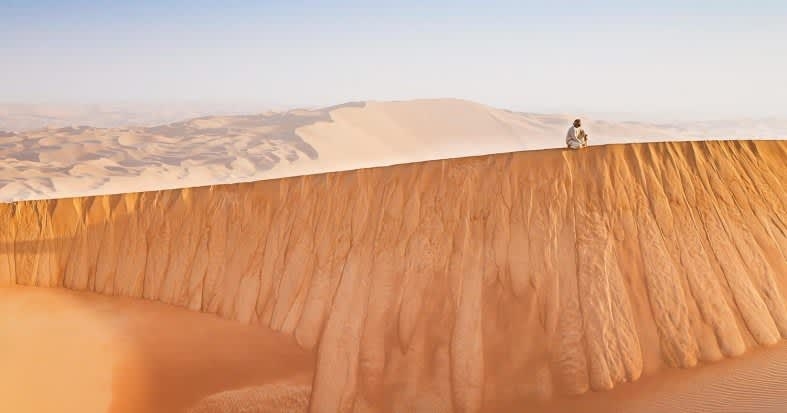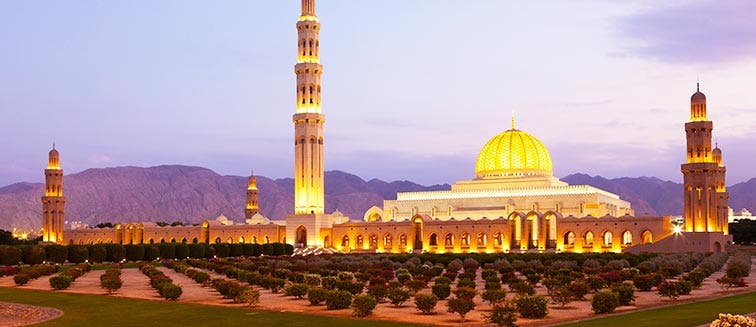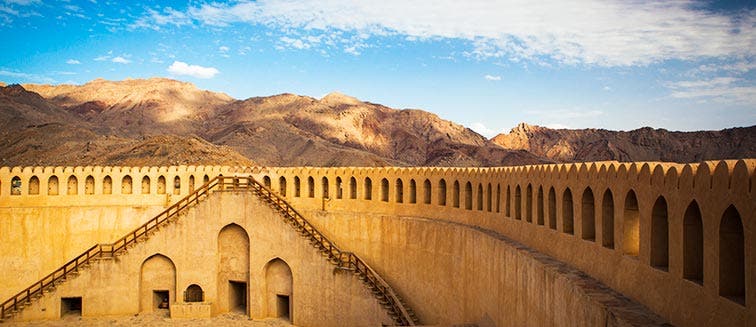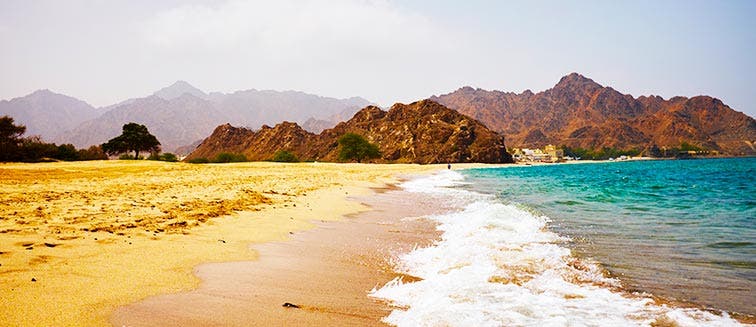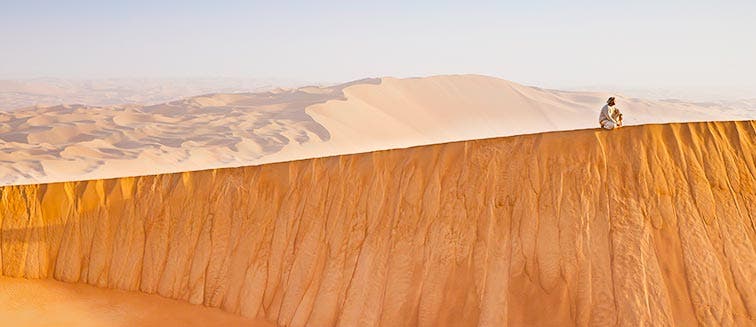A treasure nestled on the Arabian Peninsula in the Middle East, Oman feels distinctively different from its well-known neighbours of the United Arab Emirates and Saudi Arabia. Oman is a slice of Arabia in its purest form and boasts a proud sense of nation. Until the 1970s, Oman was pretty much closed to the outside world until Sultan Qaboos bin Said guided the country in a new direction, encouraging education, tourism and development of the cities and infrastructure.
A long-lived Sultanate and Islamic heritage make a trip to Oman a magical experience, where the cities are awash with magnificent religious architecture and stylish monuments dedicated to their much-loved leaders. In Oman, you can experience the traditional charms of old Arabia in the white-washed streets of low-rise Muscat, the capital, or in the Beoudin traditions of the desert nomads, whose ancestors have made their lives in the deserts of Oman’s interior for generations. As well as its diverse culture, a holiday to Oman will open your eyes to the country’s rich natural beauty ranging from coastal enclaves to verdant wadis and seemingly endless sand-duned deserts, dotted with frankincense trees.
You can’t talk about Oman without mentioning the welcoming, tolerant and friendly nature of its people. An Omani welcome is always warm, whether it be in the act of sharing hearty meals with local nomads at an authentic Bedouin camp or simply the greetings you’ll receive from locals as you’re sightseeing in the capital. Travel to Oman is on the increase, yet the country’s dedication to preserve its natural attractions and culture ensure your visit will leave you with an authentic experience of the Arab world.
History of Oman
Oman has been famed since ancient times for its rich natural resources such as frankincense and copper. Its early history is a tale of foreign rule by the Persian, Parthian and Sassanid Empires. It was in the 7th-century that Oman adopted Islamic beliefs, which remain a cornerstone of the national culture to explore if you visit Oman today. At this time, Iranian influence ended to be replaced by the Imamate of Oman, the Turko-Persian Seljuk Empire and the Nabhani Dynasty respectively.
Oman was not without European intervention as Portuguese colonists arrived and captured Muscat in 1515, retaining their hold over the coast in the hope of protecting their Indian Ocean trade routes until 1650, when the Omanis drove them out. From the late 17th-century onwards, Oman showed itself to be a strong empire, constantly vying with Britain and Portugal for control over the Persian Gulf and the Indian Ocean. Omani influence, under their powerful Sultans, extended all the way to the African island of Zanzibar, which they acquired in 1698 and used as the royal residence. In the 20th-century the Sultanate came under the influence of the British, especially in regards to Oman’s most valuable natural resource: oil. The first exports of oil from Oman began in 1967.
Three years later, Oman’s present-day Sultan, Qaboos bin Said, staged a bloodless, British-backed coup against his father to take control of the now wealthy country. Soon after rising to the throne, Sultan Qaboos bin Said began a campaign of transformation, modernising the nation and abolishing slavery, something which had long been allowed in Oman. This was known as the ‘Omani Renaissance’ and the nation soon joined the United Nations and Arab League and voting rights were opened up to larger parts of the population. Today, Sultan Qaboos bin Said remains an absolute ruler and one of the world’s longest-reigning monarchs. On a tour of Oman, you cannot miss out on a visit to his Grand Mosque or to his home town of Salalah, in the leafy south of the country.
Nature in Oman
Home of one of the driest and hottest climates on the planet, you cannot underestimate the power of an Omani summer, especially inland. Winter is the best time to travel to Oman if you’re planning on exploring outside, but Oman’s charming coastal towns offer options for year-round travel, especially with many upmarket resorts dotted along the most pristine stretches of beach. Monsoon rainfalls encourage lush foliage in the Dhofar region and up in the mountains, which are awash with coconut palms, whilst the south is known for its mythical frankincense trees.
Despite its sometimes inhospitable terrain and climate, Oman is home to a rich array of wildlife, with leopards, ibex, desert foxes and wild cats known to prowl the mountains and gravel deserts. Above all, Oman has a diverse environment. Its territory encompasses the golden sand dunes and Bedouin communities of the Wahiba Deserts, glistening wadis or river valleys, such as Wadi Bani Khalid, and abundant coastal waters, home to coral reefs teeming with tropical fish, turtles and even whales.
A holiday to Oman is sure to unfold against a backdrop of palm trees, which are abundant throughout the country, producing a diverse array of date varieties, one of Oman’s most famous products. From stargazing in the Wahiba Sands to watching the seemingly lifeless deserts transform into lush oases after the late summer monsoon rains, a trip to Oman is a must for nature-lovers.
Culture in Oman
60% of the population of Oman practice Ibadi Islam, a strand of Islam predominant in the country, so religion plays an important role in Omani culture. Traditional Omani culture is also closely tied to agriculture and fishing, as well as maritime trade. The traditional dhow boat is an enduring symbol of Oman’s seafaring heritage. National dress is widely worn. For men this consists of a long, collarless gown, a headdress and, on special occasions, men will also wear a khanjar, a decorative dagger which appears on the Omani flag.
In public places, women tend to wear an abaya, a loose-fitting cloak or, on special occasions, more colourful and elaborate clothing. Traditionally, the colours of the clothes would denote which part of the country the wearer comes from. On a tour of Oman, you may notice that religious freedom is allowed; there are a large number of Indian communities who can be seen attending local Hindu temples.
Arabic is the official language and English is taught from an early age. Omani culture has a great appreciation for outdoor pursuits and for nature. Unlike in Dubai or Abu Dhabi, Oman is a place where people do not generally have great wealth, therefore the price of living is nowhere near as extravagant as its neighbours. Omani everyday life is remarkably laid-back, so don’t travel to Oman expecting the fast cars and world-record breaking shopping malls you can find in nearby UAE.
